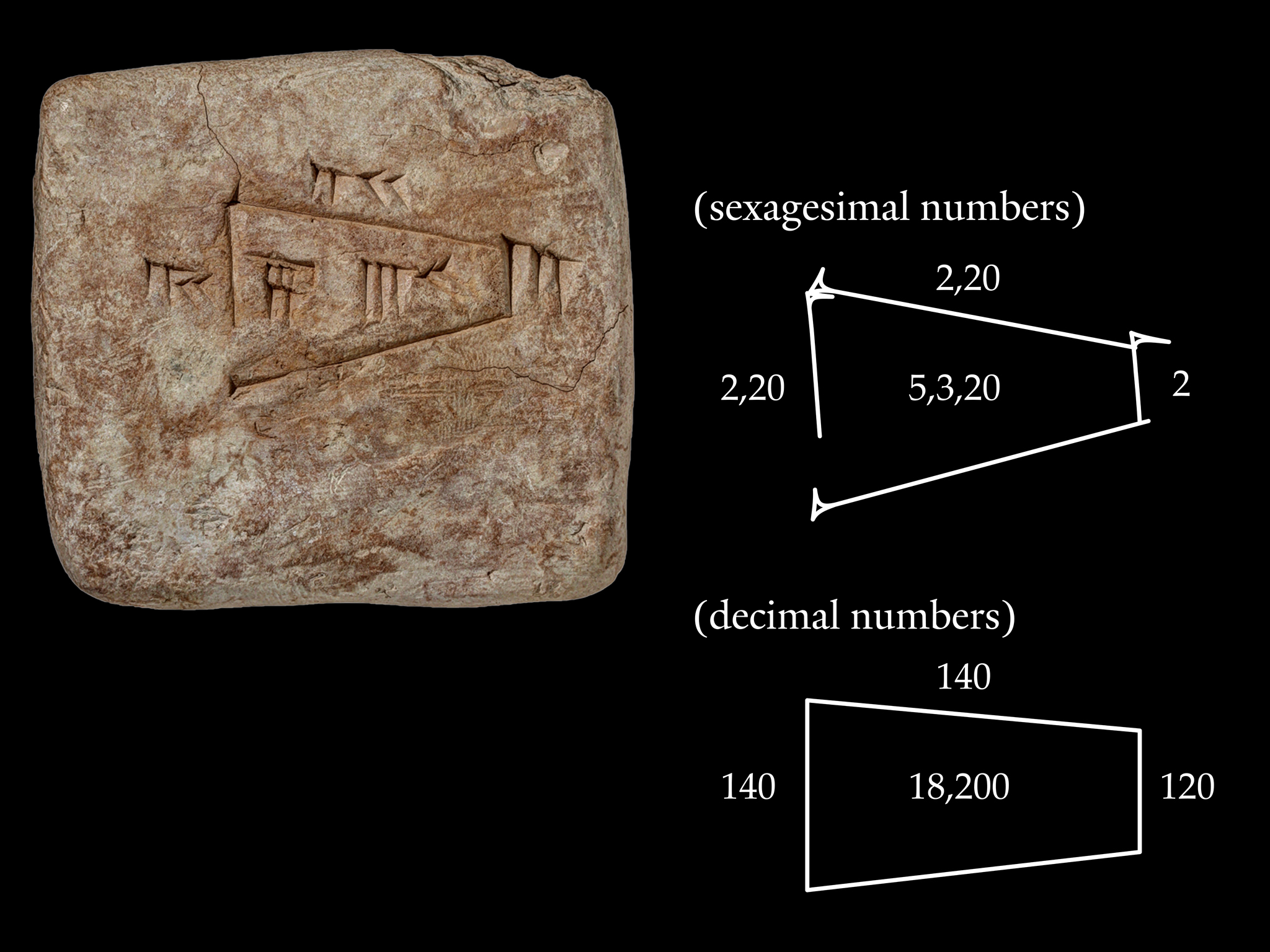CDLI tablet

YBC: Highlights 106 (2024-02-09)
Created by: Wagensonner, Klaus
Area of a Trapezoid (YPM BC 021355, YBC 7290; Old Babylonian period (1900– 1600 BC); 72 x 78 x 27 mm; clay)
This mathematical tablet contains a calculation for the area of a trapezoid. The reverse (bottom) shows a small unlabeled drawing of a trapezoid, while the obverse (top) contains a trapezoid with three of the sides labeled with numbers, and the area of the trapezoid written in the middle. The left and upper sides are labeled “2,20,” and the shorter right side is labeled “2.” The area of a trapezoid is calculated by adding the two bases together, multiplying by the height, and dividing by two. This means that although the labels on the left and right refer to side lengths, the label on the upper side must be understood to refer to the height of the entire figure, rather than the length of that side. So to calculate the area, 2 + 2,20 is multiplied by 2,20, then divided by two. This multiplies out to five and one-eighteenth, or 5,03,20 in sexagesimal notation, which is the number written inside the trapezoid. See it in the exhibition “Ancient Mesopotamia Speaks ... Highlights from the Yale Babylonian Collection” at the Peabody Museum of Natural History, New Haven, 6 April 2019 – 30 June 2020 CDLI entry: P255049
credit: Tang, Sergio; Scruton, Benjamin
image credit: Wagensonner, Klaus
Cite this Cdli Tablet
@misc{CDLI2025,
note = {[Online; accessed 2025-10-14]},
author = {{CDLI contributors}},
year = {2025},
month = {oct 14},
title = {},
url = {https://cdli.earth/cdli-tablet/739},
howpublished = {https://cdli.earth/cdli-tablet/739},
}
TY - ELEC AU - CDLI contributors DA - 2025/10/14/ PY - 2025 ID - temp_id_643625132670 M1 - 2025/10/14/ TI - UR - https://cdli.earth/cdli-tablet/739 ER -

